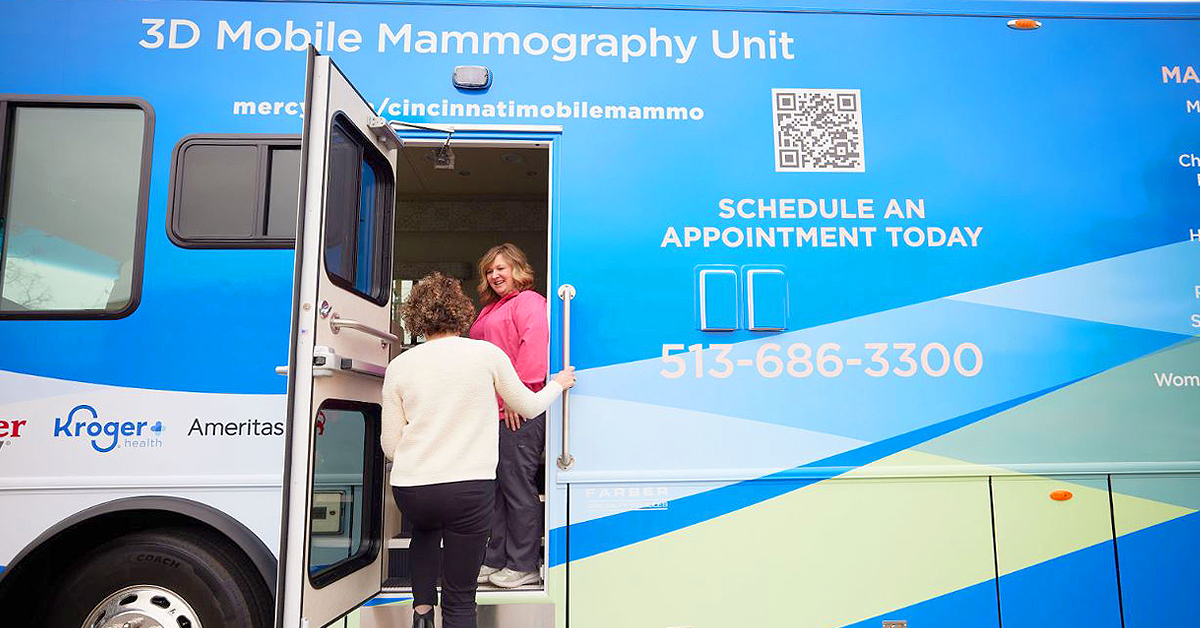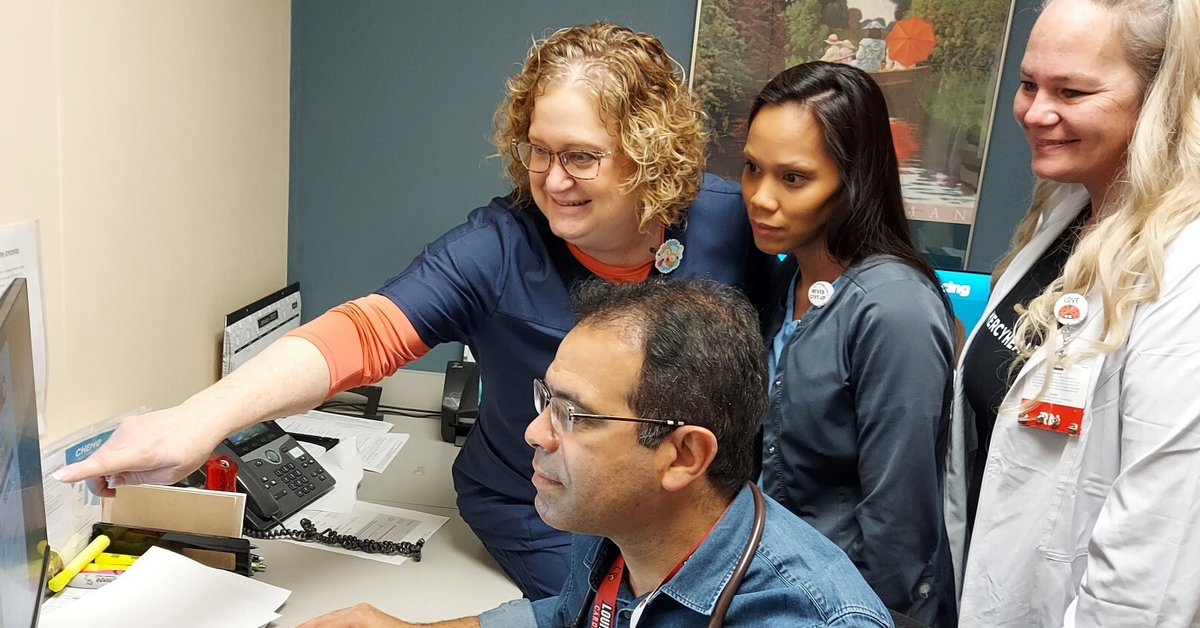When it comes to health care, women have more options than ever before—including who provides that care. One role that is commonly misunderstood? The midwife.
For many, the term “midwife” invokes an outdated stereotype of an untrained labor coach who helps women deliver babies at home. While that was the case many years ago, the midwife profession has evolved over time.
Midwives: fact versus myth
“Probably the most common myth is that we only deliver babies, when in fact we offer a full scope of care from adolescence through menopause,” said Donna Augustine, a Certified Nurse Midwife with Mercy Health.
That scope includes maternity care and labor support, along with well-woman visits, family planning, physical exams, preventative care, and diagnosis and treatment of female health issues. Midwives can also prescribe medication and order tests within their scope of practice.
Highly-trained providers
In order to provide such a wide scope of care, midwives must complete advanced training.
“They have to meet requirements and pass a national certification examination that is overseen by the American Midwifery Certification Board,” explained Augustine. “Midwives are also licensed as an advanced practice provider with their state boards of nursing.”
How midwives help deliver babies
While maternity care and labor support are key services for midwives, some have misconceptions about what those services entail. Many believe that midwives only deliver babies at home. Some also think mothers aren’t allowed to receive pain medication or an epidural when working with a midwife.
The facts are quite different. Most mothers who work with midwives give birth in a hospital and have access to both traditional and alternative forms of pain management.
“Each birth plan is customized based on the individual patient and what she wants out of the birth experience,” Augustine said. “We strive to support the body’s natural, normal processes during childbirth, but we recognize that medical intervention is sometimes necessary for the health and safety of mother and baby.”
Midwifery care has been endorsed by the American College of Obstetricians and Gynecologists as a safe option for women. In fact, statistics show that the addition of midwifery care has improved maternal and fetal outcomes in the United States.
“Studies show that midwifery patients experience a lower rate of Cesarean sections, episiotomies, infections and babies requiring resuscitation,” Augustine said.
Empowered care
With more options for care providers than ever before, why are women choosing to work with midwives? Augustine believes it’s because patients want to play an active role in their health.
“Midwives approach women’s health as a partnership. We provide patients with resources, knowledge and education so they can make informed decisions,” Augustine said. “It provides a personalized experience where patients feel empowered to make healthy choices in all aspects of life.”
If you’re interested in learning more, visit mercy.com to find a midwife near you today.






